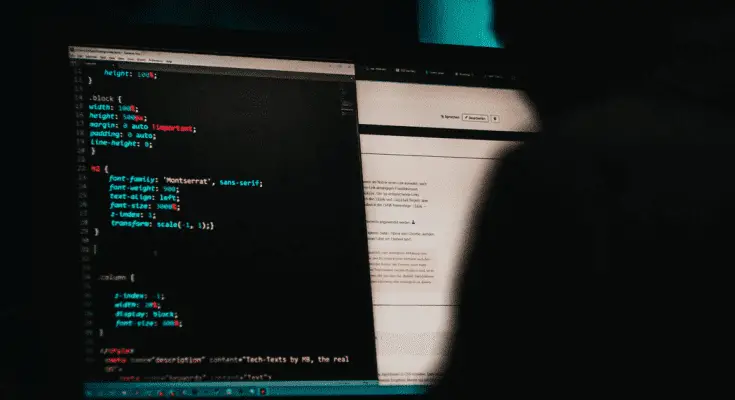Not everyone who visits the dark web is on a mission to find Silk Road, looking for questionable or illegal content, or a would-be cybercriminal seeking opportunities.
In fact, plenty of regular internet users choose to visit the dark web for a myriad of reasons, curiosity being just one of them!
Here we take a look at a few of the facts and fictions about accessing the dark web. We also examine what it is exactly, why it is different from the deep web and the clear web, and how to safely access it.
Let’s begin by defining each of the websphere.
Fact: The clear, deep, and dark webs are all different things
What is the clear web?
If you’re reading this article, you are on the clear web; a section of the internet all of us use daily. The clear web consists of publicly accessible web pages, the vast majority of which are indexed by search engines such as Google or Firefox. The clear web is also called the surface web.
What is the deep web?
The deep web, on the other hand, consists of pages and content that is purposefully hidden from public view and not indexed by search engines. Dark web content is similar in that it’s not indexed by standard search engines, but the majority of deep web content isn’t dark, rather, it’s mundane, behind the scenes stuff.
When we talk about the deep web, it generally means things like registration-required web forums and content that exists for a corporation’s systems and so on. Deep web content generally requires sign-in authentication credentials.
What is the dark web?
According to Wired, the dark web comprises just 0.1 percent of the internet as a whole. Dark web pages are intentionally hidden from surface view and encrypted so that anonymity is assured. While it is true that dark web content can be illegal, or disturbing, or a combination of both, not all dark web content should be written off as deviant.
For citizens living under an oppressive regime, for example, the dark web may provide a safe space to voice concerns and fears. In these instances, the dark web actually empowers users by allowing them to freely express their views while maintaining their anonymity.
Dangers on the dark web
Despite some benefits, such as the one outlined above, it must be said that the dark web can be a dangerous place. There are certain risks involved that users need to mitigate. Here are a few:
Malware
Much like the clear or surface web, the dark web plays host to a broad range of advanced cybersecurity threats. Malware is malicious software that encompasses programs such as keyloggers and botnets. It is specifically designed to cause damage to a user’s data or device. Sometimes for financial gain, and other times for no discernable reason at all TBH.
It’s not surprising that the dark web is riddled with malware, after all, it is the place where malware is sold, planned, and often initially distributed. Cybercrime is a burgeoning industry, and software as a service (SaaS) exists for nefarious means, too.
Scams
If a user visits the dark web with an intent to part with money in exchange for an illegal service, there is a very high chance the user will fall victim to a scam. And since the service and the purchasing of it are both illegal, there is no recourse or way to regain the lost cryptocurrency.
Illegal and/or disturbing services
While the dark net might be home to what one might call victimless crimes — buying marijuana or magic mushrooms, for example — it is also home to plenty of crimes with real-life victims. Child pornography, sex trafficking, snuff, and other disturbing crimes are all found on the dark web.
Staying safe on the dark web
The above said it is not illegal to visit the dark web. However, curious visitors should be aware that engaging with some dark web content or services is illegal, even if an act or actions happens accidentally via a MEME or GIF.
To stay safe when taking a deep dive, the user should adhere to some basic security steps:
Use known software for access
Stick to known and trusted browsers that allow you to anonymously access the dark web. Your best bet is the Tor browser, just be aware that like any software, it too can be compromised. For that reason you should also;
Use a VPN
You should always use a VPN for security when you connect to the dark web. The Tor network doesn’t come with a privacy guarantee and you may still be de-anonymized. What a VPN does is provides an extra layer of essential protection. Connect your VPN first then connect to Tor, this is known as Tor over VPN.
Be cautious
Don’t trust people on the dark web, don’t use your real name or your credit card, don’t send payments to dubious sites, and don’t use your standard email address.
FAQ
What is the dark web?
According to Wired, the dark web comprises just 0.1 percent of the internet as a whole. Dark web pages are intentionally hidden from surface view and encrypted so that anonymity is assured. While it is true that dark web content can be illegal, or disturbing, or a combination of both, not all dark web content should be written off as deviant.
What is the deep web?
The deep web, on the other hand, consists of pages and content that is purposefully hidden from public view and not indexed by search engines. Dark web content is similar in that it’s not indexed by standard search engines, but the majority of deep web content isn’t dark, rather, it’s mundane, behind the scenes stuff.
Additional Resources:
Deep Web
Robots
Artificial Intelligence
728x90/300x250 -->


